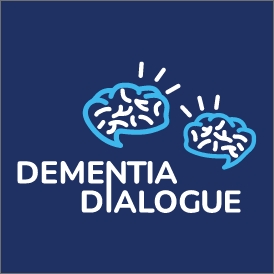Episode 9All Seasons / Season 2 (ep. 8-11) / Episode 9
Episode 9
This second episode on Human Rights and Dementia explores issues related to the overall theme. Christine Telker is a dementia activist who is from British Columbia and is a member of Dementia Alliance International, a worldwide network of people with dementia. Jane Barratt leads the International Federation on Ageing and is working to advance a Convention of the Rights of older persons. Dr. Deb O’Connor teaches at UBC and helps us understand how human rights can be applied even when dementia has progressed. All three have some suggestions about what we can do to promote human rights and dementia. As well, mention is made of our Town Hall to be held June 29.
After receiving a dementia diagnosis, Christine describes Dementia Alliance International as a lifesaving organization for her. Through her advocacy work with them, she was chosen to be their presenting representative at the United Nations. She talks about dementia being an overlooked disability because of the fear and stigma surrounding it. She also points out that women are diagnosed with it and provide care for people with it -both personally and professionally- in much higher numbers and the intersectionality of ageism and sexism. She encourages listeners to start speaking out for better recognition of and services for people living with dementia now!
Jane suggests bringing organizational forces together in the aftermath of the Covid-19 tragedy in our long term care facilities, to raise one powerful unified voice, to create real change in the Canadian system, for the people in care and their care providers.
Professor O’Connor outlines the importance of shifting the lens through which we look at care to a social citizenship or human rights based lens. This means seeing people with dementia as active agents in their lives and in their decision making. It means recognizing that because somebody has a diagnosis of dementia, they don't become passive recipients of care, that dementia is not a language for saying that somebody is incapable.
Resources for this episode can be found under the following sections on our resource page:
-Advocacy/Awareness
Previous Episode Next Episode
